Contraception Options at TestSite Medical
Every one of our locations offers a different variety of contraception options. Kindly get in touch with the practice of your choice to confirm the available choices.

Contraception Options Explained
Typically, contraception options either prevent pregnancy by preventing the release of an egg from the ovary (ovulation) or by preventing sperm from reaching the egg and fertilising it.
Types of Contraception
· Hormonal methods: These methods use hormones such as oestrogen and progesterone to prevent ovulation. Examples include the pill, injection, and vaginal ring.
· Barrier methods: These methods physically block sperm from reaching the egg. Examples include condoms, diaphragms, and cervical caps.
· Intrauterine devices (IUDs): These are small, T-shaped devices that are inserted into the uterus and work by preventing the sperm from fertilising the egg.
· Sterilisation: This is a permanent form of contraception that involves surgery to block or cut the fallopian tubes in women (tubal ligation) or the vas deferens in men (vasectomy).
· Natural methods: These methods involve tracking a woman's menstrual cycle and avoiding sex during the most fertile days. Examples include the calendar method, basal body temperature method, and cervical mucus method.
What Options are Available to Me?
Contraception can be either short acting, in which case you must remember to use them, or long acting, in which case you don’t need to remember to do anything.
Short Acting Contraceptives
Short-acting contraceptives are effective ways to manage family planning as well as your monthly cycle.
· The Pill. The combined oral contraceptive, or more commonly known as ‘the pill’ is a combination of the female hormones oestrogen and progesterone and is a very popular oral contraceptive. The pill is very effective and works by preventing the ovaries from releasing an egg. The pill has non-contraceptive benefits, such as improving period pain and irregular bleeding, relieving pre-menstrual syndrome (PMS), lightening heavy periods, and protecting against certain cancers. While side effects are uncommon, there is a small risk of serious problems (particularly blood clots) as well as more common side effects experienced by some women such as bleeding between periods, mood swings and breast tenderness. The pill cannot be used by women with certain medical conditions such as uncontrolled high blood pressure, certain types of migraine and women with a past history or family history of blood clots.
· The Mini Pill. The mini pill is a progesterone-only tablet that works by thickening the mucus from your cervix, making it difficult for sperm to move through it and reach an egg. It also makes the lining of the uterus thinner and sometimes stops your ovaries from releasing an egg. The risk of serious health problems with the mini pill is much lower than with the pill and many women who cannot take the pill due to a medical condition are safe to use the mini pill. It can also be used when you are breastfeeding. However, women who use the mini pill report higher rates of irregular periods than those using the pill and you have to be more exact about the time you take it each day than you do with the pill.
· The Patch. The contraceptive patch is an alternative way to take hormones and is worn on the skin: ideally on the leg, arm, or bum, and is more convenient than swallowing a daily pill. It is usually referred to by its brand name, Evra. It works in the same way as the pill and contains the same hormones. It is very effective and easy to use and you do not have to remember to take it every day. If you have sickness (vomiting) or runny stools (diarrhoea), the contraceptive patch is still effective. Some women do, however have skin irritation and if it comes off then its effectiveness is negatively impacted. It has similar risks to the pill, such as blood clots.
· The Ring. The ring is a flexible see-through ring just over 5cm in diameter and is worn inside the vagina like a tampon, providing a convenient alternative to swallowing a pill each day. The vaginal ring is worn for three weeks, followed by a week's break. After exactly one week, you put a new ring into your vagina. It contains the same hormones as the pill and is about as effective at preventing pregnancy. While it has many of the same benefits as the patch, some people feel it during sex. It may irritate your vagina and cause soreness or discharge. It has similar risks to the pill, such as blood clots.
· Diaphragms. A diaphragm is a contraceptive device made of thin, soft latex or silicone with a flexible rim that fits inside your vagina and covers your cervix, blocking sperm. There are no serious medical risks or side effects, but to be effective, diaphragms need to be used with a spermicide and they a trained doctor or nurse must initially fit you for the correct size. After you have had a fitting and know your size you can purchase future ones from the chemist.
· Condoms. Condoms are readily available and affordable. They can be used in conjunction with other contraceptive methods. If either partner has had previous sexual partners, condoms are a wise choice. Compared to other barrier methods, condoms offer the most protection against sexually transmitted infections. However, they are not quite as reliable as other methods as male condoms occasionally split or come off. They need to be used properly every time you have sex. Some people feel that condoms may make sex feel less spontaneous.
Long-Acting Reversible Contraceptives (LARC)
Long-acting reversible contraceptives give you peace of mind as you don’t have to remember to use them regularly. There is an array of options for women at different stages of life.
· Hormone injection. The hormone injection Depo-Provera contains a progestogen hormone that resembles the natural progesterone produced in women's ovaries. It works by inhibiting ovulation and is as effective, if not more so, than the pill in preventing pregnancy. Since it contains no estrogen, it is safe for use by women who cannot take the pill due to health issues. It is also a popular choice among breastfeeding women.
The injection is administered using a small needle in either the arm or thigh and lasts for around 12 weeks. It is over 99% effective and is preferred by women who desire a highly reliable form of contraception without the hassle of taking pills.
The injections are not free of side-effects, however. Periods may become irregular (but often lighter or stop altogether). After stopping there may be a delay in your return to normal fertility for several months. It may take up to a year for your period to come back. Other common side-effects include weight gain, mood changes and headaches. The injection does not provide any protection against sexually transmitted diseases.
· Hormone Implant. The contraceptive implant, commonly referred to as the "Bar," is a small, flexible plastic rod that is placed just beneath the skin in the upper arm. It releases a progestogen hormone similar to the natural progesterone produced in women's ovaries, that prevents ovulation. The implant is effective for up to three years and fertility returns quickly once it is removed. With an efficacy rate of well over 99%, the implant is more reliable than both male and female sterilisation and is 100% reversible. It has become a popular choice for contraception due to its reliability and reversibility. Periods may become irregular (but more often are lighter or stop altogether), however, and some women develop side-effects, but these tend to settle after the first few months. Implants do not provide any protection against sexually transmitted diseases.
· IUDs (Coils). An intrauterine contraceptive device (IUD) is also known as a coil. Different types and sizes of IUDs are available to suit different women's needs. There are two types of IUD which can be inserted into the womb (uterus):
o Hormone IUD. Often known as the ‘Mirena Coil’, it is a popular form of IUD for a reason - it is more than 99% effective and once inserted it can last for up to six years. It consists of a small T-shaped plastic device with a hormone-filled tube running along its length. Soft plastic threads hang from the bottom of the device. The tube releases a progestogen hormone similar to the natural progesterone produced in women's ovaries.
o Copper IUD. Copper wire IUDs or ‘coils’ are growing in popularity as an alternative form of reliable contraception without the use of hormones. Similar to the Mirena, copper coils are small, T-shaped plastic devices that are inserted into the uterus. However, instead of hormones, they are wrapped with copper wire around the shaft and arms of the "T". They also have one or two soft threads on the end, which are not noticeable unless checked for.
The advantage of IUDs is that you do not have to remember to take pills and they last a long time (5-10 years). Also, there are no hormones, so there are no side-effects due to hormonal changes in your body. However, your periods may become heavier or more painful and IUDs must be inserted by a doctor or qualified nurse. They do not provide protection against sexually transmitted diseases.
Sterilisation
This is a permanent method and either the male or female partner can be sterilised. In both cases it involves an operation. It is very effective, but no method of contraception is 100% reliable. Sterilisation is most often used when your family is complete. Since it is permanent, you should therefore be sure of your decision before proceeding.
· Female Sterilisation. Tubal ligation is a permanent and very effective form of contraception, but it cannot be reversed. The procedure must be performed under general anaesthetic, which comes with the usual small risks which are associated with general anaesthetics. Your stomach may feel bloated and sore for a few days after the operation.
· Male Sterilisation (Vasectomy). Vasectomy is a small operation, performed under local anaesthetic, to cut the vas deferens (the tube that takes sperm from the testicles to the penis) so that sperm can no longer get into the semen that is ejaculated during sex. While it more than 99% effective as a contraceptive, the procedure can cause discomfort, bruising and swelling after the operation for a week or so. Furthermore, it takes a while before a vasectomy becomes effective so during this time you will have to use another form of contraception to reduce the risk of unplanned pregnancy.
Natural Family Planning
Natural family planning can be any method of preventing pregnancy that does not involve taking a contraceptive medication or using a contraceptive device. Broadly, there are two types of natural family planning method, or a combination of the two:
· Fertility awareness method (FAM). This relies on being able to predict your fertile time (the time you are likely to conceive), which are typically four days before and two days after ovulation. This method requires tracking the menstrual cycle, taking daily morning temperature readings, and being aware of vaginal changes throughout the cycle. To prevent pregnancy, a barrier method must be used, or intercourse must be avoided during fertile days.
· Withdrawal method (coitus interruptus). This relies on the man being able to tell when he is near climax and pulling out of his partner's vagina before ejaculation. Although widely practised, this method is not recommended as a form of contraception, due to the number of unplanned pregnancies it leads to.
There are many apps, tools and kits on the market to help women track their cycle and predict when they are most fertile. Even with significant commitment, however, natural family planning is still less reliable than other options.
Emergency Contraception
Emergency contraception are methods to prevent pregnancy after you have had unprotected sex or if you have had sex, but there was a problem with contraception such as a split condom or if you forgot to take your usual contraceptive pills.
There are three types of emergency contraception available to women - there are two types of pill (often referred to as the ‘morning after pill) and the IUD (coil). Depending on which pill is taken, the morning after pill must be taken within 3-5 days of unprotected sex but is most effective the sooner it is taken. The morning after pill is available from pharmacies without a prescription or from a doctor or family planning clinic.
The coil is the most effective form of emergency contraception (nearly 100% effective), so you should always consider this option. This is partly because emergency contraceptive pills are not effective if taken after ovulation has taken place. inserted by a doctor or nurse. The coil must be inserted by a doctor or qualified nurse up to five days after unprotected sex or up to five days from the earliest possible date you could have ovulated. It has the added benefit of providing ongoing contraception.
Practices that also provide Contraception Options

Applewood Medical Centre
Applewood Village, Swords, Co. Dublin
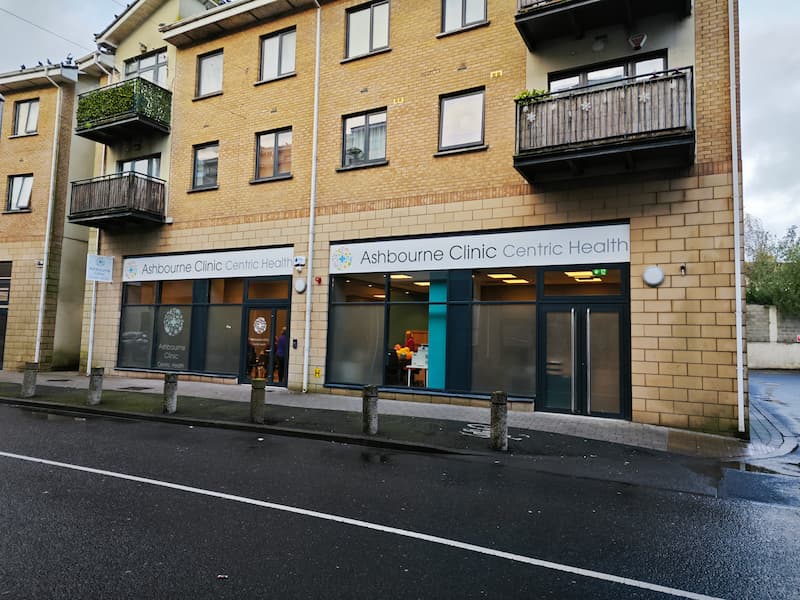
Ashbourne Clinic
62 Declan’s Street, Killegland Walk, Ashbourne, A84EP40

Ashford Clinic
Unit 1 Mount Usher Court , Ashford Co Wicklow

Athy Medical
Carlow Road , Athy, R14 X672 , Co Kildare

Ballyowen Medical
Ballyowen Lane, Lucan, Co Dublin
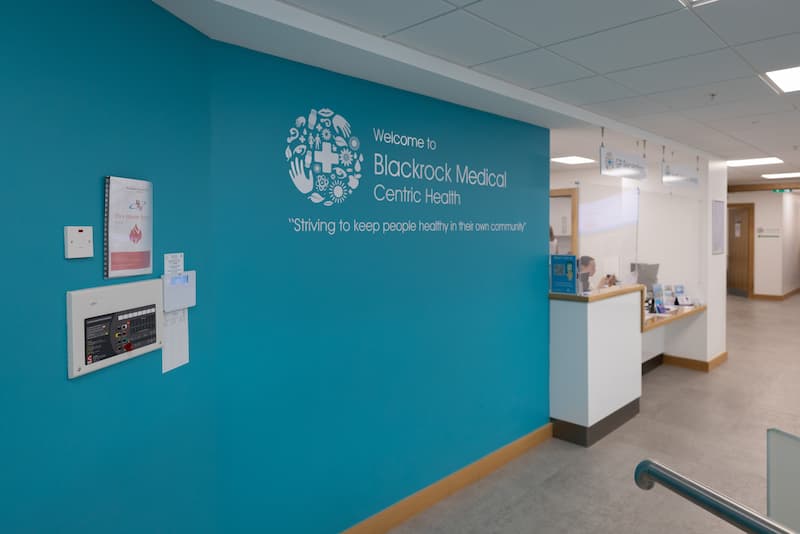
Blackrock Medical
Frascati Centre, Blackrock, Co Dublin, A94 H6V9

Blessington Medical
McGreals Primary Care Centre, Blessington Business Park, Blessington, Co. Wicklow
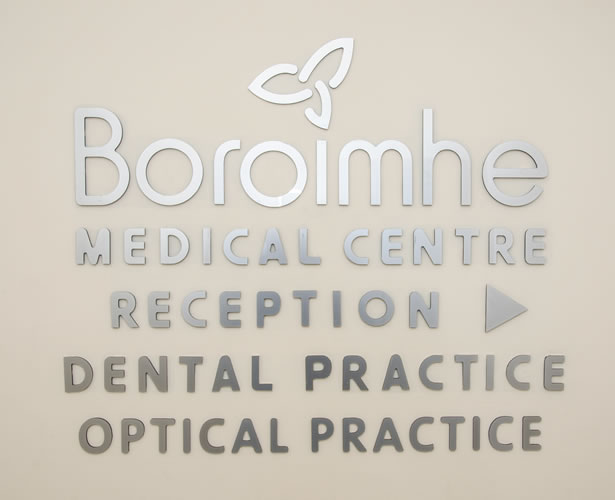
Boroimhe Medical
Forrest Road, Swords, Co. Dublin

Bryanstown Medical
Dublin Road, Martello Village, Drogheda, Co Louth

Carlow Medical
Shamrock Plaza, Green Lane, Carlow, Co Carlow

Castleknock Village Medical
The Square, Castleknock, D15 P3VX

Celbridge Medical
Celbridge Primary Care Centre, Maynooth Road, Celbridge, Co. Kildare, W23 YK24

Churchtown Medical
96 -98 Churchtown Road Upper, Churchtown, Co. Dublin, D14 EW68
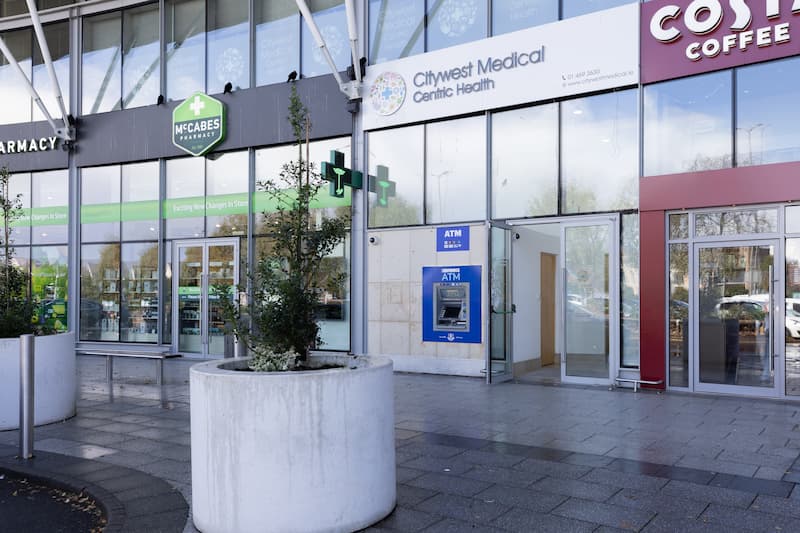
Citywest Medical
Unit 5, Citywest Shopping Centre, Citywest, Dublin 24 D24KOYT
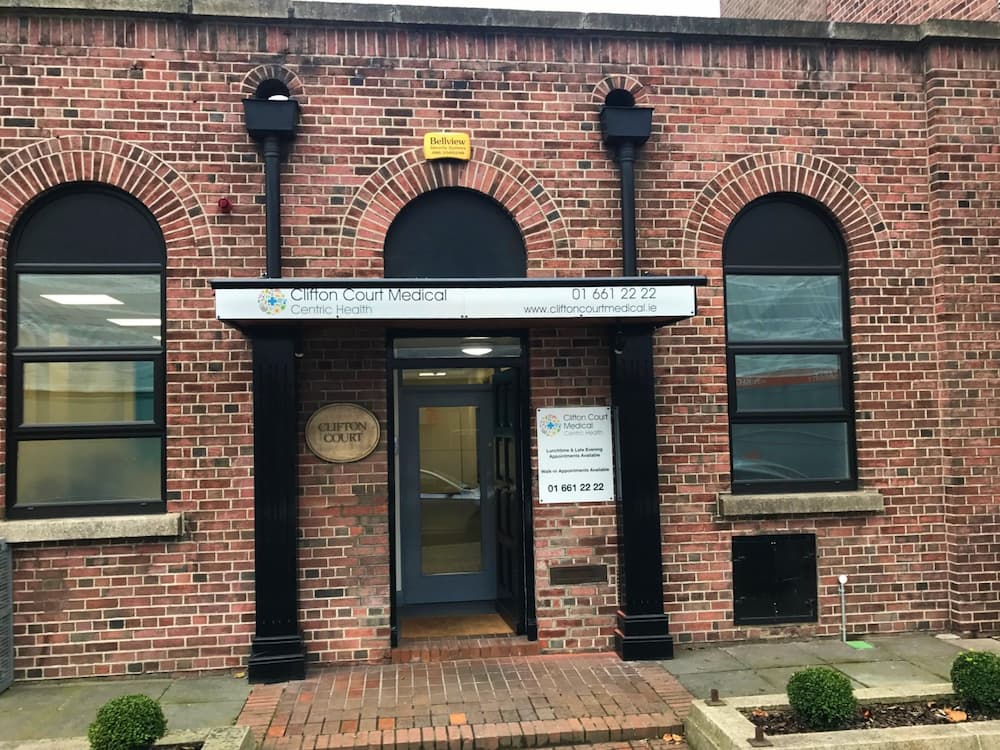
Clifton Court Medical
Clifton Court, Fitzwilliam Street Lower, Dublin 2, D02 V279

Corbally Medical
Corbally Medical , Corbally Rd, Limerick, V94 WFX9

Cottage Surgery
New Rd, Bailieborough, Co. Cavan, A82 D2XO

Desmond Medical
Station Road, Gortboy, Newcastle West, Co. Limerick, V42RD76

Dolmen Family Medical Practice
Shamrock Plaza, Green Lane, Carlow, R93 YF70

Donaghmede Medical
Donaghmede Shopping Centre, Grange Road, Dublin 13

Doonmoon Medical
Doonmoon Medical Centre, St Nessan's Road, Dooradoyle, Limerick V94 FCD1

Dundrum Medical
Dundrum Medical Centre, Level 4, Dundrum Town Centre, Sandyford Road, Dundrum, Dublin 16, D16 XC91
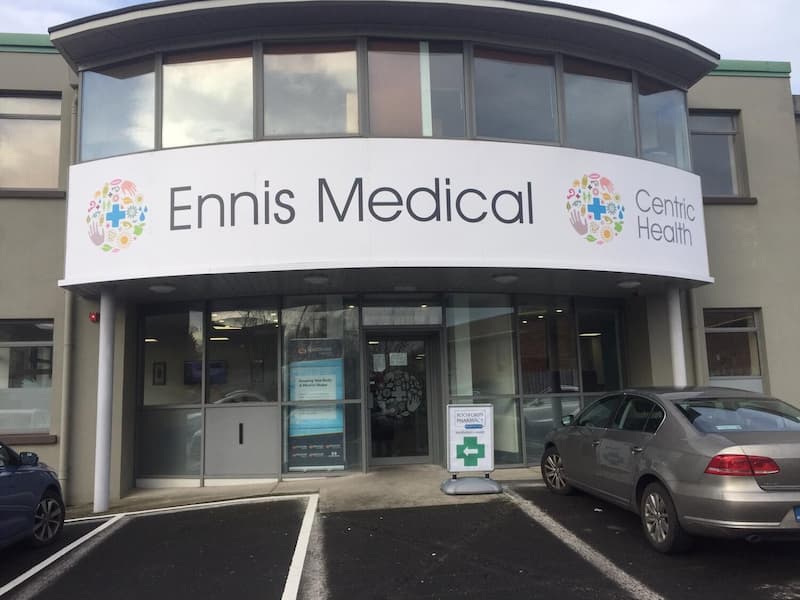
Ennis Medical
Francis Street, Ennis, Co Clare V95 KC3H,

Ennis Road Medical
Ennis Road, Limerick

Fairgate Medical
No.6 Lower Ground Floor, Boyne Shopping Centre, Drogheda. A92W990

Finglas Medical
45 - 47 Main Street, Finglas, Dublin 11

Glasnevin Family Practice
11 Finglas Rd, Harts Corner, Glasnevin, Dublin 11, D11PA00

Grafton Medical
Grafton Buildings, 34 Grafton Street, Dublin 2, D02 XY06

Headfort Family Practice
Primary Care Centre, Navan Road , Kells, Co. Meath, A82 H3C7
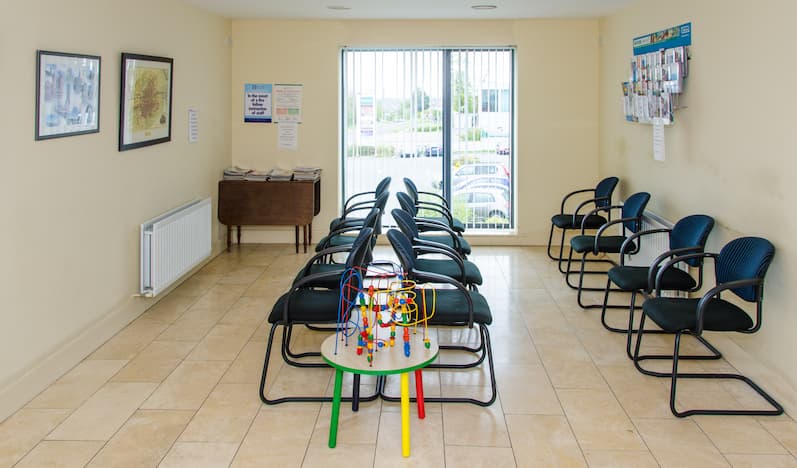
Hilltop Medical
Rathmullan Rd., Rathmullan, Drogheda, A92 KVP8, Co. Louth

Johnstown Medical
Johnstown Road, Dun Laoghaire, Co.Dublin , A96W248

Kilcock Medical
The Bawnogues, Kilcock, Co. Kildare, , W23 XY89

Kilcullen Medical
The Medical Centre, Main Street, Kilcullen, Co Kildare, R56 NV26

Killarney GP
6B Scott St, East Avenue Road, Killarney, Co. Kerry.

Knocknacarra Medical Centre
Clybaun Road, Knocknacarra, Galway, H91 TKF3

Manor Mills Medical
Manor Mills Shopping Centre, Mill Street, Maynooth, Co Kildare W23 V5X5

Maretimo Medical
The Promenade, Upper Salthill Road, Salthill, Co Galway, H91 EW68

Meadow Springs Medical
41a Meadow Springs, Clareview, Limerick, V94 RPA8

Medina Medical
Mill Road, Fermoy, Co.Cork, P61 NN79

MyCorkGP Douglas
Douglas Road, Cork T12 EX00
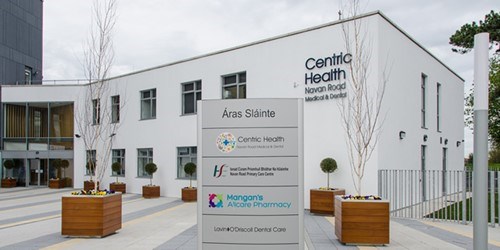
Navan Road Medical
Primary Care Centre, Navan Road, Dublin 7, D07 K229

Newbridge Family Practice
Orchard House, Moorefield Road, Newbridge, Co. Kildare, W12Y884,

Newbridge Medical
Station Road, Newbridge, Co. Kildare,

Northgate Surgery
226 Pearse Park, Drogheda, Co Louth, A92 E088
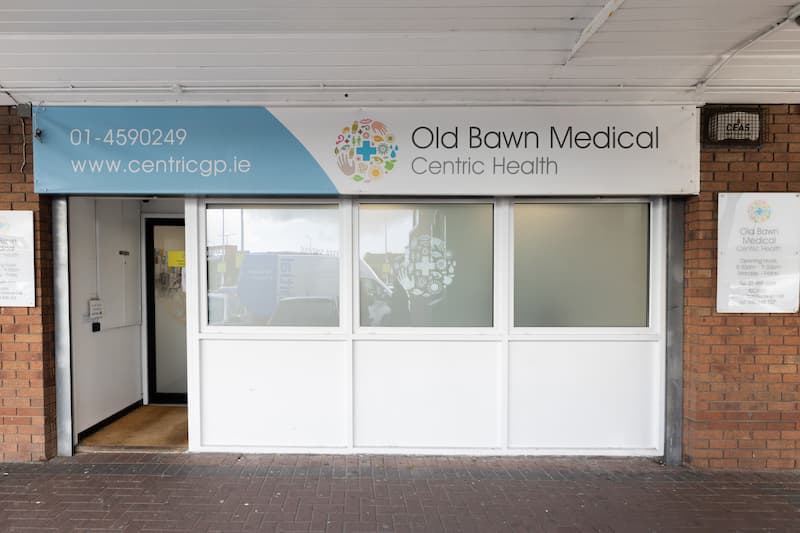
Old Bawn Medical
Unit 2-3 Old Bawn Shopping Centre, Tallaght, D24 HXW3,
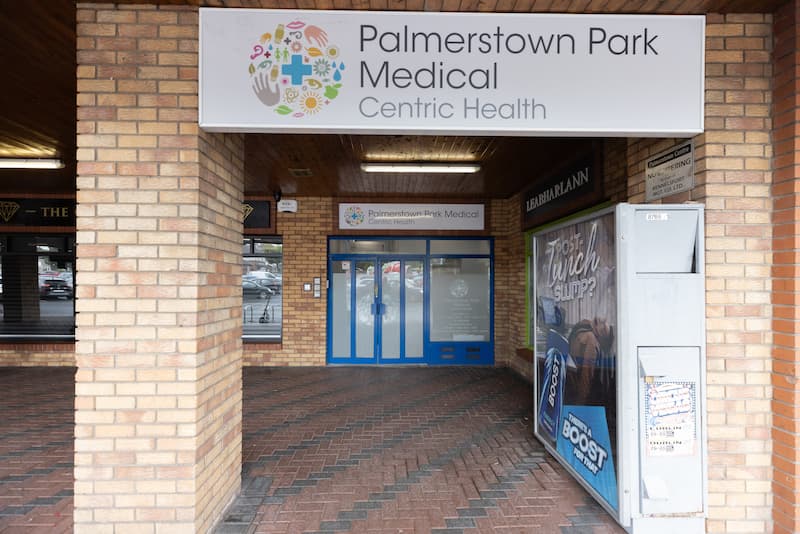
Palmerstown Park Medical
Palmerstown Park Medical, Unit 18 First floor Palmerstown Shopping Centre, Palmerstown Dublin 20, D20HP44

Raheen Medical
1 Greaney Close, Raheen, Limerick, V94 V2TT
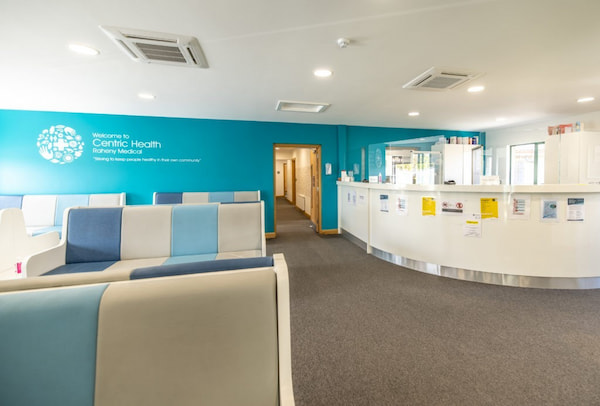
Raheny Medical
1st Floor, Hilltop Shopping Centre, Station Road, Raheny, Dublin 5, D05 F625
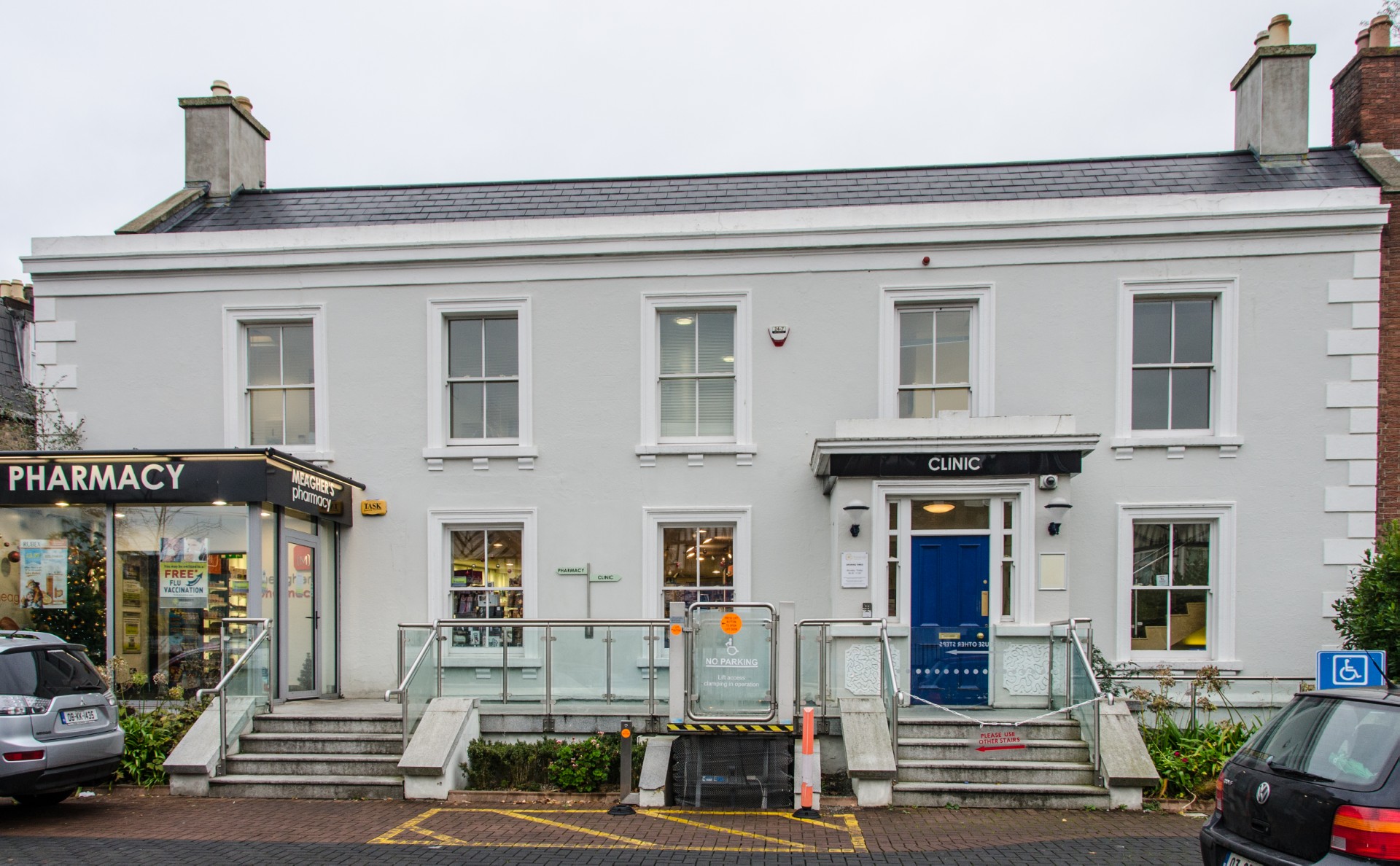
Ranelagh Medical
22-26 Sandford Rd, Ranelagh, Dublin 6, D06 KF84

Roshill Medical
Unit 11, Level 1, Briarhill Shopping Centre, Ballybrit, Galway H915W40

Salem Medical
Wicklow Primary Health Centre, Knockrobin, Co. Wicklow, A67 P762

Sandyford Medical
Unit C7, The Plaza, Beacon South Quarter, Sandyford, Dublin 18, D18 TY79
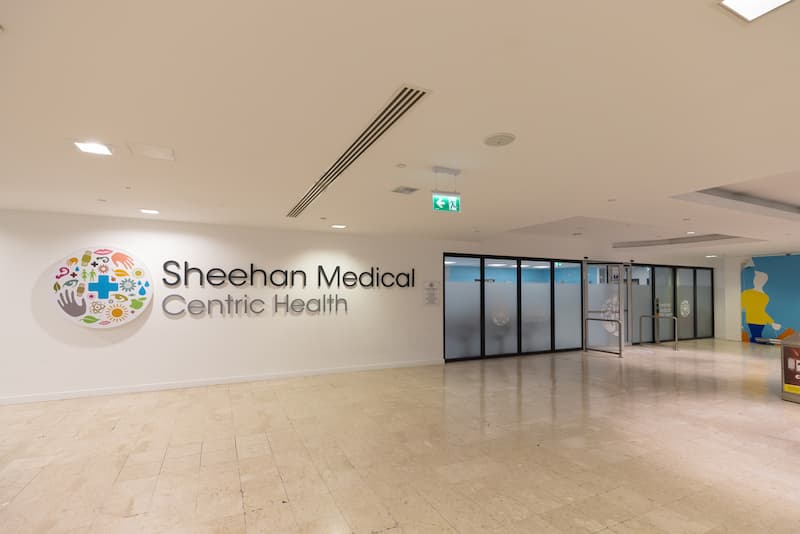
Sheehan Medical
Unit 301, 3rd Floor, Dun Laoghaire Shopping Centre, Marine Road, Dun Laoghaire, A96 DD74

Southern Cross Medical
Southern Cross Road, Bray, Co. Wicklow, A98 V4K7,

St James’s Gate Medical
114 - 116 James's street, Dublin 8, D08KXN8

Sutton Medical
St. Margaret's, 1 Greenfield Road, , Sutton Dublin 13, D13 H9H6,

Tuskar Medical
St Martins Road, Rosslare Harbour, Wexford Y35 RX62

Terenure Medical
84A Terenure Road East, Terenure, Dublin 6, DA6 W5A2
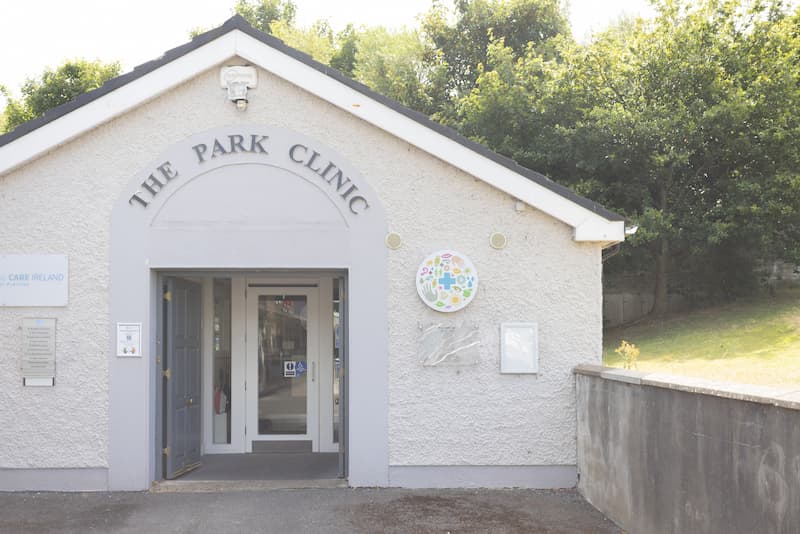
The Park Clinic
The Park, Cabinteely, Dublin 18, D18 C984

The Plaza Clinic
Main Street, Swords, Co Dublin

The Square Medical
1st Floor Elgee Building, Market Square, Dundalk, Co. Louth. A91 YR9X

Tobin Healthcare Centre
Spencer Street, Castlebar, Co Mayo, F23 WV78

Trim Medical
Trim Primary Care Centre, Longwood Road, Trim, C15 PHP1, Co. Meath

Tyndall Clinic
Unit 9B, Barrowvalley Business Park, Sleaty Road, Graiguecullen, Carlow R93 N6W8

Village Medical Centre
Unit 6 Village Shopping Centre, Watery Lane, Clondalkin, D22V2H9

Wexford Medical Centre
2-3 Redmond Square, Wexford, Y35 PF63,

Wherlands Lane Medical
Blackpool, Cork City, T23 APR3,

Willow Park Medical Centre
72 Willow Park Crescent, Glasnevin, Dublin 11, D11 X981
